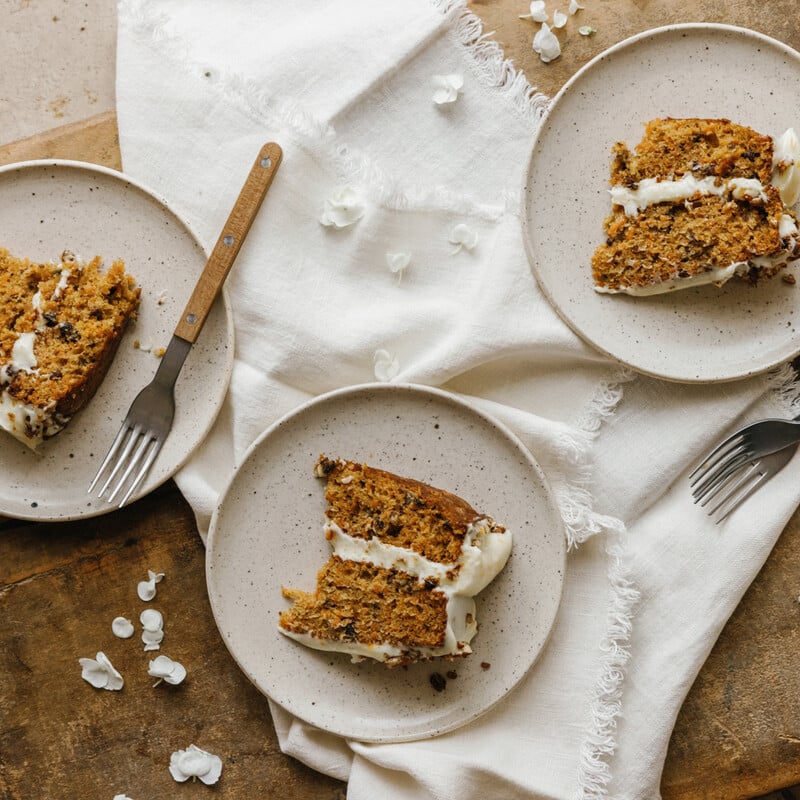Hot take: If you asked me how to curb your sugar cravings, I’d respond with three simple words: Just eat it. The cookie, the ice cream—whatever sweet foods your cravings call for. I know, not exactly the advice you’d expect from a health coach, but by keeping an intuitive eating approach in mind and equipped with all the healthy hacks from the Glucose Goddess herself, sugar isn’t so scary anymore. (Hint: The trick lies in how you eat it.)
To be fair, I’d ask you a couple of questions before instructing you to throw self-control out the window and eat to your heart’s desire. What you ate for breakfast, (sorry, vanilla lattes don’t count), how you slept last night, and your current menstrual phase all impact blood sugar more than you’d expect—until you finish this article, that is, *wink*. But the biggest impact on sugar cravings? Your blood sugar. Keep reading for both long- and short-term tips for how to curb sugar cravings for good.
Featured image by Michelle Nash.

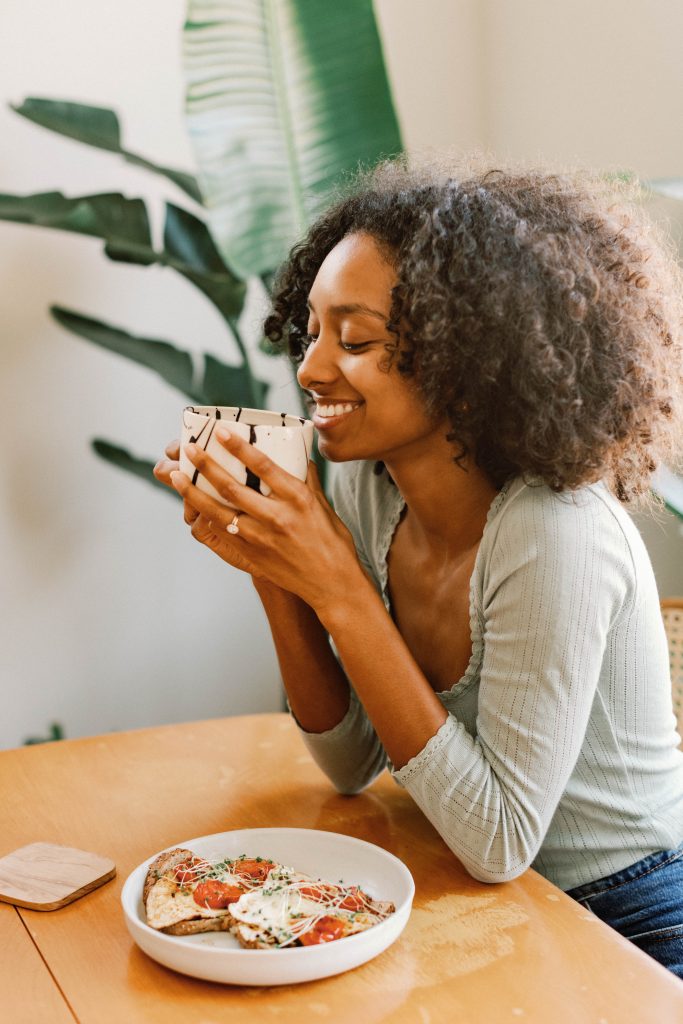
Why do we crave sugar?
Our body is communicating with us all the time. When we learn to listen to its cues, we can give our body exactly what it needs to keep thriving. One (not-so-subtle) example of how our body communicates with us: sugar cravings.
Let’s set the scene. You just arrived home from a long day. Suddenly, your taste buds take over and a little voice in your head whispers, wouldn’t a sweet snack be PERFECT right now? This is your body’s way of communicating that your blood sugar is about to crash—and you need something sweet to bring it back into balance. Whenever our blood sugar levels spike, a crash ensues. The after-effects of this crash are the main reason sugar cravings occur.

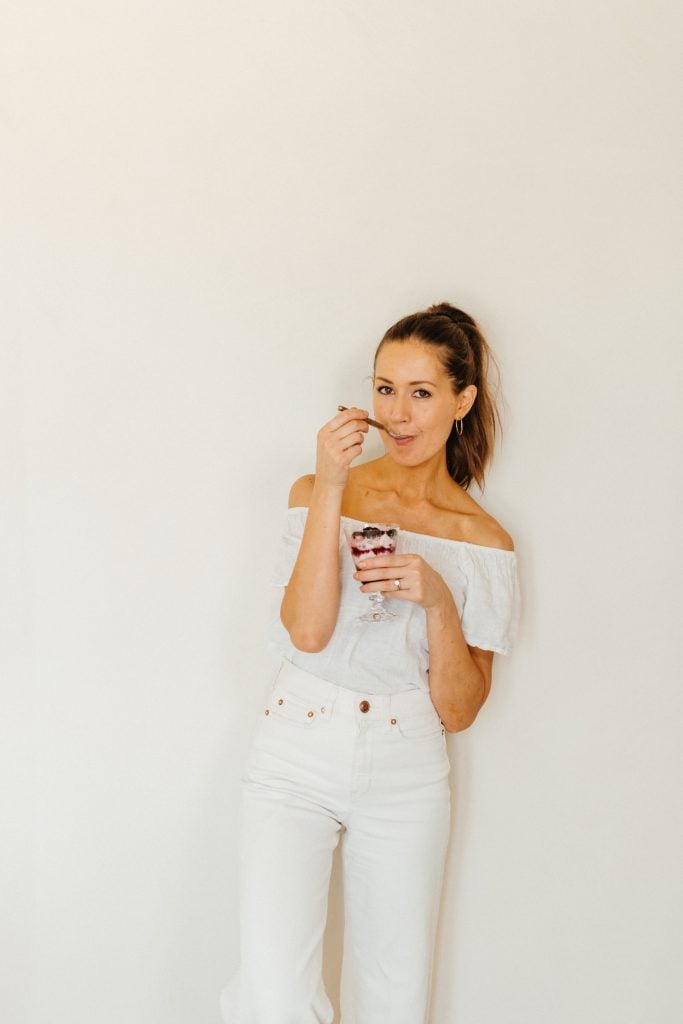
Remember: Life’s Too Short to Not Eat Sweets
Hear me out. Eating high-sugar foods is totally fine on occasion. While there are many benefits to a sugar-free diet and lifestyle, being too fixated on “clean eating” can lead to an unhealthy relationship with food down the road.
Don’t get me wrong: limiting added sugar in our diet is important to our long-term health and wellness. But a holistically healthy lifestyle means looking at things big picture, and sugary foods eaten in moderation can be a part of a healthy diet. Especially when we’ve implemented sustainable habits like prioritizing sleep, movement, and mental health.
My personal strategy for how to curb sugar cravings is to eat a little sugar every once in a while like it’s no big deal—because the way you think about food affects the nutrition you take in.
Now that some of the shame and fear around eating sugar is hopefully dispelled, let’s talk about strategies for how to quit your so-called sugar addiction and incorporate these sweet snacks into your healthy-living diet.

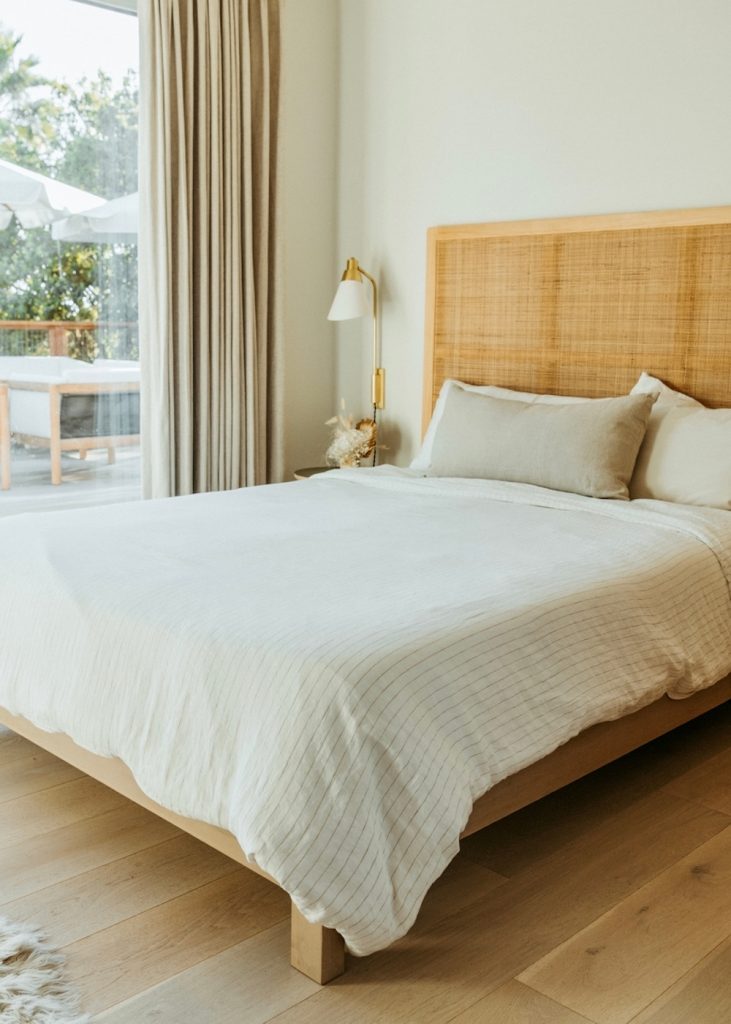
How to Curb Sugar Cravings in the Long-Term
Pay Attention to Your Menstrual Cycle
There’s a reason women crave chocolate and ice cream during our time of the month. Scientists speculate that female sex hormones cause an instability in blood sugar (which leads to higher glucose spikes, crashes, and sugar cravings) and that sex hormones cause an increase in appetite.
In the luteal phase specifically, the female body requires more calories to function. While everybody (and every body) is different, the average increase in calorie requirement is around 300 calories per day during this phase of the menstrual cycle. Increasing calorie intake slightly can help stabilize blood sugar and keep sugar cravings at bay. This is also a great opportunity to add cycle syncing into the mix. During certain phases of your cycle, when these cravings for sweeter foods and carbohydrates arises, respond accordingly! Opting for berries, dark chocolate, whole grains, and functional spices like cinnamon can help you avoid excess sugar consumption and keep your sugar intake in check. Making smart sugar swaps, rather than going cold turkey, is a solid solution.
Prioritize Sleep Hygiene
Sleep quality has a huge impact on sugar cravings. When we are sleep deprived, our body’s ability to metabolize blood glucose is impaired. If you wake up after eight hours of perfect sleep and have a piece of fruit on an empty stomach, it might not cause a blood sugar crash. But another day, after only six hours of sleep, the same piece of fruit can lead to a huge crash in blood sugar.
A poor night’s sleep also affects our hunger hormones. Leptin and ghrelin, our hunger hormones, play key roles in dictating appetite, and a lack of sleep has been shown to impact these hormones and increase hunger cues. What’s more, poor sleep makes us crave higher-calorie foods. So if you’re wondering how to curb sugar cravings, prioritize getting 7-8 hours of sleep every night.

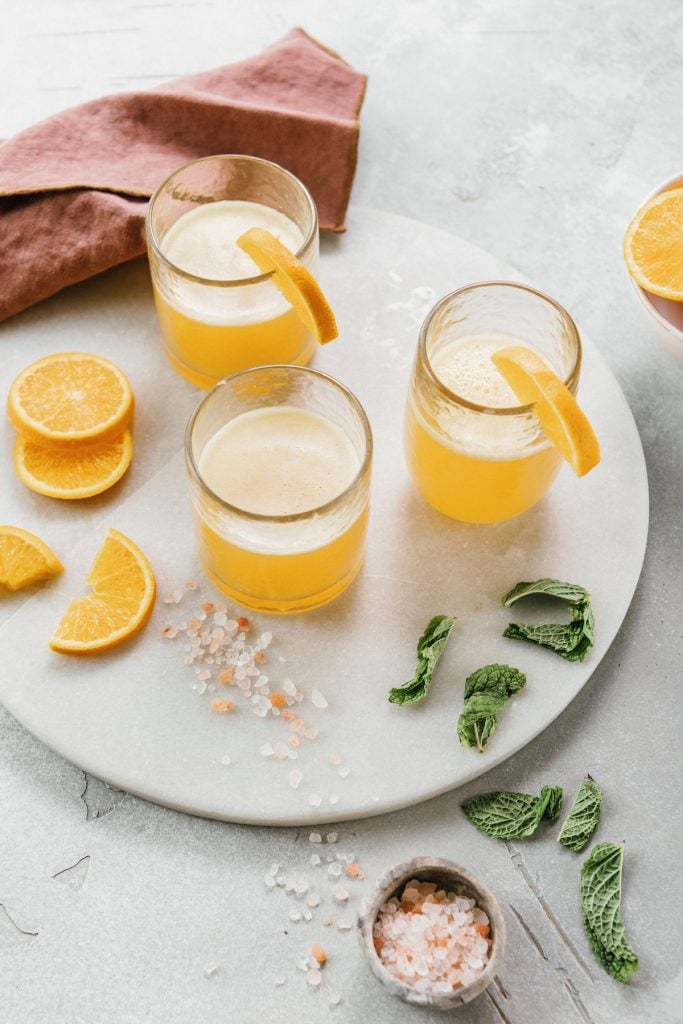
How to Curb Your Sugar Cravings Immediately
Have a piece of fruit
My personal strategy to fight sugar cravings on the spot is usually to eat something sweet. (I know, revolutionary.) I find that giving my body what it needs is a gentle and intuitive approach to healthy living.
Whenever I’m having sugar cravings, I look to fruit first. Usually, mango, watermelon, or nectarines do the trick for me. Not only are you getting a boost of antioxidants (without having too much sugar), but fruit is full of fiber and will balance your blood sugar better than a piece of candy or cake. Not to mention the many vitamins and minerals in fresh fruit that are so important for long-term health and wellness.
Drink An Adrenal Cocktail
An adrenal cocktail is a hormone-supporting beverage. It often contains citrus to satisfy your sweet tooth and is full of electrolytes and minerals for added hydration.
But when it comes to adrenal cocktails, proceed with caution. Because fruit juice is stripped of fiber, it’s not the best option for stabilizing blood sugar. However, if you pair the functional beverage with a handful of almonds or a scoop of high-fat coconut cream, you can keep your blood sugar stable and cravings at bay.
Eat Dates with Nut Butter
Dried fruit has a higher amount of sugar than fresh fruit. This means that dried picks are more likely to spike blood sugar and drive sugar cravings. But pairing dates with high-protein nut butter that’s full of healthy fats can give us the stable blood sugar boost our body needs. A quick snack of dates and nut butter can satisfy your sugar cravings while also giving you an extra bit of fiber, iron, potassium, and loads of other vitamins and minerals.


The Best Way to Indulge in Sugar Cravings
Take an Apple Cider Vinegar shot
Yep, it’s true. Drinking apple cider vinegar, or topping your salad with dressing before eating something sweet, helps reduce the blood sugar spike, crash, and sugar cravings. I call this a WIN. Just be sure to dilute ACV in water prior to drinking.
Think About Food Order
How you eat your food matters. The best way to eat any meal is by eating the highest fiber foods first, then protein, fat, and starches last. But please don’t rip apart your sandwich and eat it piece by piece. These rules are supposed to enhance your life, not make it more complicated. Prioritizing a plate of high-fiber vegetables, like a salad, before every meal is a simple way to implement this healthy hack.
Enjoy Mindful Movement
Moving your body, whether it’s doing jumping jacks, squats, or taking a walk around the block, lowers the spike in blood sugar after eating sweets. This is an incredibly powerful trick on the days when sugar cravings are at an all-time high.
It doesn’t have to be complicated and it doesn’t have to take long. Take the stairs instead of the elevator, do some chores around the house, or pump up the music and dance to your favorite song.
Pair Your sugar With Protein, Fiber, and Fat
Think back to the dates and nut butter snack above—you can apply this formula anytime you’re craving something sweet. Look for foods to eat alongside sweet treats that are high in fiber, fat, and protein. These macronutrients slow down our digestion, which slows down the release of sugar into our bloodstream, and therefore lessens sugar cravings. Easy snacks to have on hand are prosciutto, cheese, or my personal favorite, a boiled egg.
This article is for informational purposes only. It is not, nor is it intended to be, a substitute for professional medical advice, diagnosis, or treatment and we recommend that you always consult with your healthcare provider.


